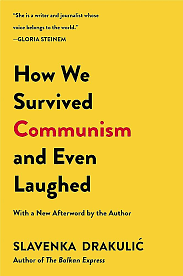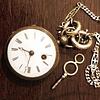Take a photo of a barcode or cover
emotional
informative
reflective
medium-paced
emotional
hopeful
informative
reflective
sad
slow-paced
I loved Cafe Europa and at first this earlier collection didn't live up to it in my mind but by the end I found myself liking it as much if not more than Cafe Europa. Although over 25 years old now the themes in this book still resonate. As an American, clueless to the realities of communism, Drakulić's writings have helped me see behind the rhetoric and get a glimpse into the mindset of the people behind the once impenetrable iron curtain.
L'oppressione nelle piccole cose
Libro scritto all'inizio degli anni Novanta, quando il comunismo sembrava finito, almeno in Europa. Per la terra natale di Slavenka Drakulic, la Croazia, il grande dramma stava per cominciare. «Il peggior pessimismo non avrebbe predetto una guerra nei Balcani», scrive nella nota a il lettore italiano, aggiunta nell'edizione del 1994 che ho letto.
«La conseguenza di tutto questo, e specialmente della guerra, è stato un venir meno della tolleranza, un aumento della paura. Oggi dobbiamo constatare una riviviscenza del nazionalismo nella maggior parte dell'Europa: neonazismo, xenofobia, la chiusura delle frontiere dell'Occidente. Niente di quello che ci eravamo immaginati».
Ha scritto queste cose nel 1994, appunto. A distanza di trent'anni, in Europa, i nazionalismi, la xenofobia, il neonazismo, la chiusure delle frontiere vanno alla grande. Niente di quello che ci eravamo immaginati, appunto, anche se, evidentemente, per buona parte degli europei va bene così.
In questo senso il libro di Drakulic è prezioso. Perché racconta e ragiona sulle abitudini di vita di miseria e oppressione che, per lunghi decenni, hanno caratterizzato la quotidianità delle persone sotto il comunismo, in buona parte dell'Europa. Un'oppressione radicata, che si è insinuata nelle vite delle persone al punto da disabituarle alla democrazia, alla partecipazione: ci sono i problemi, ma le persone non li affrontano, «sempre dando per scontato che il famoso "qualcuno" se ne occuperà», scrive Drakulic.
Forse - dico 'forse' - questa raccolta di affreschi e considerazioni ci aiuta a capire come sia possibile che, oggi, tante persone invochino e scelgano regimi - si veda in Ungheria e in Polonia - che sono in tutto e per tutto simili al comunismo, nel modo con cui opprimono i loro cittadini, salvo dirsi anticomunisti. Orban nasce liberale e da grande diventa dittatore forse perché, nella sua terra l'eredità del comunismo è troppo ingombrante per poter governare in modo diverso.
Ultima nota: nonostante il titolo, di persone che ridono non ce ne sono davvero molte, in questo libro, e di umorismo c'è solo qualche vaga traccia, più rivolta all'occidente che non capisce l'Europa dell'est, mi sembra.
Libro scritto all'inizio degli anni Novanta, quando il comunismo sembrava finito, almeno in Europa. Per la terra natale di Slavenka Drakulic, la Croazia, il grande dramma stava per cominciare. «Il peggior pessimismo non avrebbe predetto una guerra nei Balcani», scrive nella nota a il lettore italiano, aggiunta nell'edizione del 1994 che ho letto.
«La conseguenza di tutto questo, e specialmente della guerra, è stato un venir meno della tolleranza, un aumento della paura. Oggi dobbiamo constatare una riviviscenza del nazionalismo nella maggior parte dell'Europa: neonazismo, xenofobia, la chiusura delle frontiere dell'Occidente. Niente di quello che ci eravamo immaginati».
Ha scritto queste cose nel 1994, appunto. A distanza di trent'anni, in Europa, i nazionalismi, la xenofobia, il neonazismo, la chiusure delle frontiere vanno alla grande. Niente di quello che ci eravamo immaginati, appunto, anche se, evidentemente, per buona parte degli europei va bene così.
In questo senso il libro di Drakulic è prezioso. Perché racconta e ragiona sulle abitudini di vita di miseria e oppressione che, per lunghi decenni, hanno caratterizzato la quotidianità delle persone sotto il comunismo, in buona parte dell'Europa. Un'oppressione radicata, che si è insinuata nelle vite delle persone al punto da disabituarle alla democrazia, alla partecipazione: ci sono i problemi, ma le persone non li affrontano, «sempre dando per scontato che il famoso "qualcuno" se ne occuperà», scrive Drakulic.
Forse - dico 'forse' - questa raccolta di affreschi e considerazioni ci aiuta a capire come sia possibile che, oggi, tante persone invochino e scelgano regimi - si veda in Ungheria e in Polonia - che sono in tutto e per tutto simili al comunismo, nel modo con cui opprimono i loro cittadini, salvo dirsi anticomunisti. Orban nasce liberale e da grande diventa dittatore forse perché, nella sua terra l'eredità del comunismo è troppo ingombrante per poter governare in modo diverso.
Ultima nota: nonostante il titolo, di persone che ridono non ce ne sono davvero molte, in questo libro, e di umorismo c'è solo qualche vaga traccia, più rivolta all'occidente che non capisce l'Europa dell'est, mi sembra.
emotional
informative
reflective
tense
emotional
hopeful
informative
slow-paced
informative
reflective
medium-paced
challenging
emotional
informative
reflective
fast-paced
challenging
informative
sad
slow-paced
This book really puts communism into perspective and highlights all the ways it deems certain people unimportant. A woman’s point of view on how society can forget you exist as it tries to prove that the communist way of life is superior.
hopeful
informative
reflective
fast-paced





